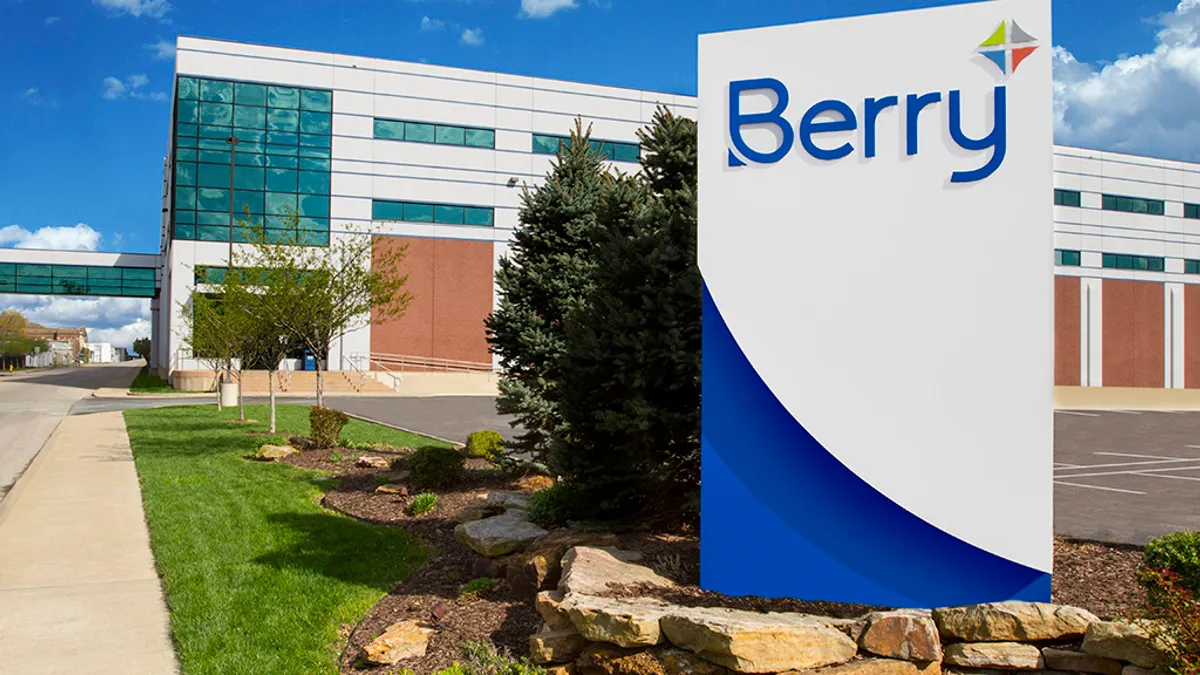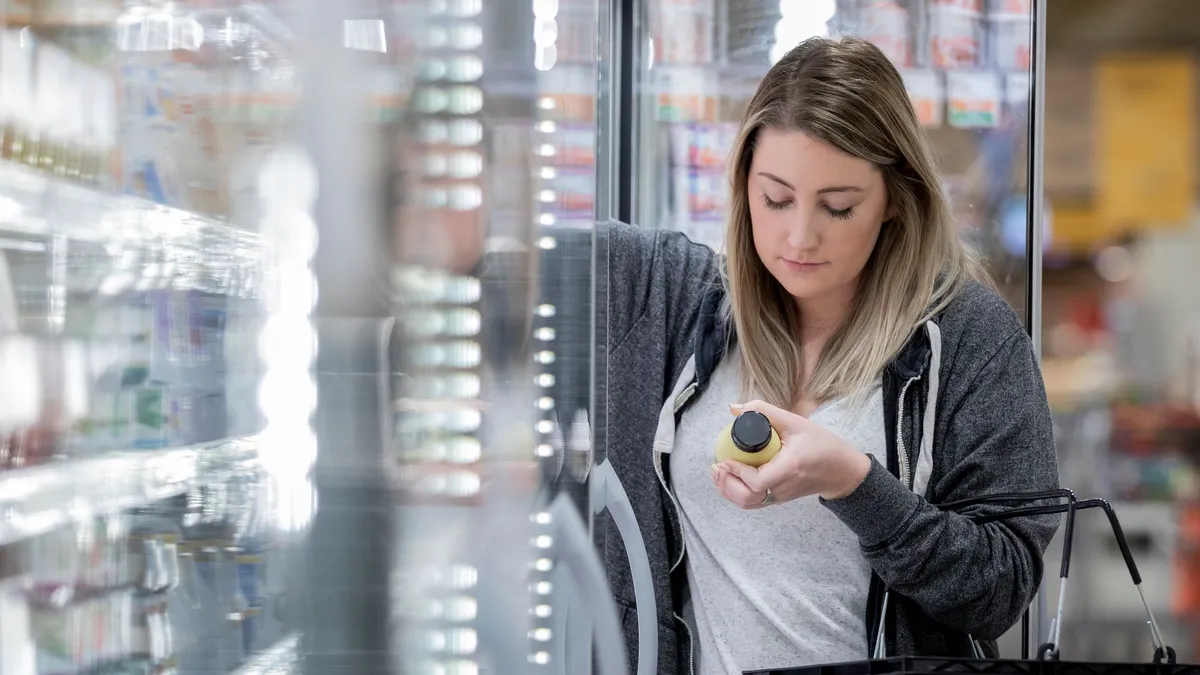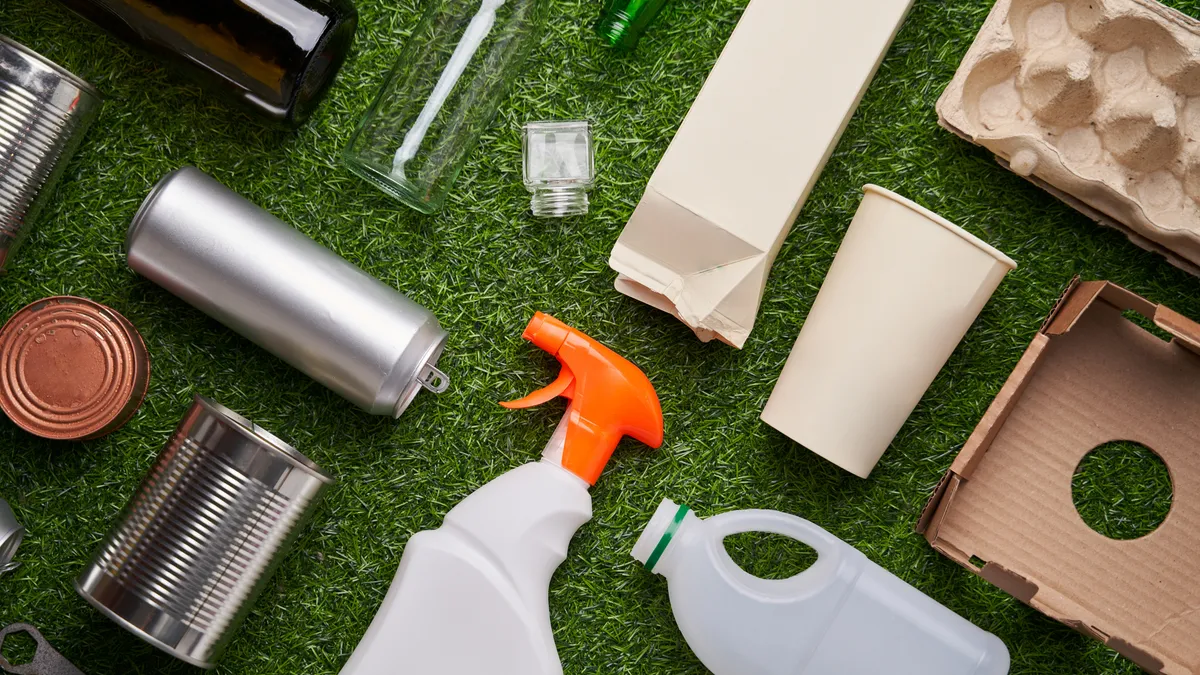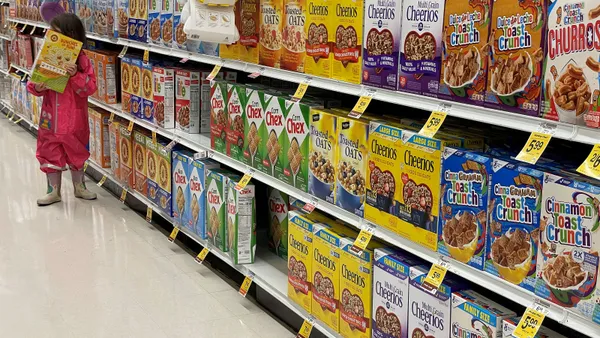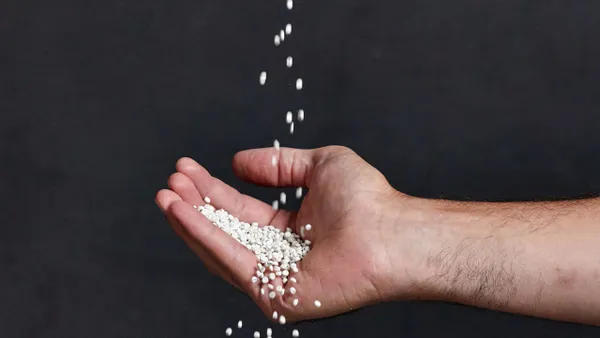Berry Global recently announced it has committed to having net-zero emissions across its global operations and value chain by 2050. To meet that target, the plastic packaging manufacturer aims to reduce its total Scope 1, 2 and 3 emissions by more than 90% and “neutralize” its remaining residual greenhouse gas emissions.
The Evansville, Indiana-based company said that the goal “helps ensure Berry is aligned with a 1.5°C warming scenario.”
“Reaching net-zero emissions by 2050 is critical to avoiding the most catastrophic environmental, social, and economic impacts of climate change,” CEO Tom Salmon said in a press release.
Berry has three main focus areas in that pursuit. One is around moving away from virgin plastic in favor of more lighter-weight, recycled or bio-based plastics. Another involves targeting its value-chain emissions, particularly from purchased goods and services, by engaging with customers and suppliers on less carbon-intensive materials. The third focuses on shifting to cleaner energy by decreasing reliance on fossil fuels and working toward opportunities for electrification, in addition to improving energy efficiency.
The company has ongoing goals to cut Scope 1 and 2 emissions 25% by 2025 from a 2019 baseline. It’s working toward that same target on Scope 3 emissions. In a 2022 ESG report released this spring, Berry reported that its Scope 1 and 2 emissions had declined 21% since 2019, and its Scope 3 emissions had declined 9%.
The sustainability report also detailed the company’s use of recycled plastic. As of last year, PCR was 3.4% of its overall resin purchases. Postindustrial resin was 8.7% of total resin consumed.
In 2021 Berry said it was the first North American-headquartered plastic packaging converter to have a 1.5 degree Celsius target validated by the Science Based Targets initiative. The following year Berry said its Scope 3 emissions reduction goal was validated by SBTi. Other packaging companies have also set net-zero ambitions and had goals validated by SBTi, including Atlantic Packaging this year.



